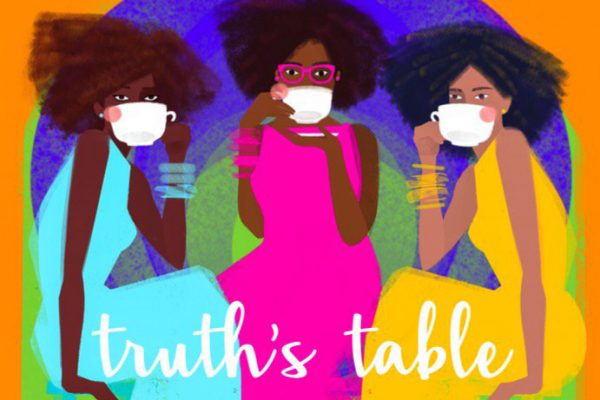

Some communities agree that women shouldn’t be pastors. But their members fiercely debate every other kind of women’s empowerment.
(By Emma Green, The Atlantic). For much of her adult Christian life, Christina Edmondson has felt like “a unicorn”: At any given time, she told me, she might be the only black woman present at a professional meeting or worship session. She and her husband live in Grand Rapids, Michigan, where she works as a dean at Calvin College, a small Christian liberal-arts school, and he pastors an Orthodox Presbyterian church plant. This spring, Edmondson and two friends, Ekemini Uwan and Michelle Higgins, started a podcast called Truth’s Table for other “unicorns” like them: Black women who often feel lonely navigating predominantly white Christian spaces, or who are generally looking for “a seat at the table,” as the women put it.
Half a dozen episodes in, the women decided to take up the topic of gender—specifically, the “gender apartheid” they see in Christianity. According to Uwan, there is “this wall, a very visible wall, erected in the church between men and women.” Many Christian conferences address “race, racism, [and] racial reconciliation, trying to do justice in those spheres,” she said, “but yet completely ignore the toxic patriarchy that is so embedded within the church.” Joined by Tyler Burns and Jemar Tisby, two black Christian men who host another podcast called Pass the Mic, the group discussed churches where women aren’t allowed to greet at the door; pastors who minimize emotional language in worship; and men who avoid friendship with women for fear of violating biblical standards of purity.
When they got to the topic of ordination, things grew heated. “What does the word ‘ordain-able’ mean? It literally means, ‘possesses a penis,’” Higgins said. “It does not mean, ‘is currently in seminary, has graduated with an M.Div,” or master’s in divinity, “‘and has gone before a licensure committee.’” The focus on male ordination often blocks women out of other leadership roles, she argued. “No one will hear me unless maybe I design and develop a penis-shaped microphone. … Maybe we should have a line of penis microphones, because it is all that you need to have to pass out communion, to take up the offering.”
Edmondson, Higgins, and Uwan are not alone in their complaints. Within the bounds of conservative Christianity, some women feel increasingly frustrated by what they perceive as artificial limits on their leadership—“the churches where the culture … is what women may not do … rather than what women are gifted to do,” as Kathy Keller, the wife of the prominent pastor Tim Keller, recently put it during her denomination’s annual meeting. That’s created tension in communities where most men—and women—oppose women’s ordination and embrace the idea that men should be the spiritual heads of households.
The result has challenged not only the traditional limits on women’s roles, but also traditional structures of authority. Independent women’s ministries, study curricula, and podcasts have proliferated, and those who lead them are often accused by their detractors of poor teaching or lacking accountability. Even the form of conversation has changed: The most heated debates often happen on social media rather than in denominational meeting halls, where legalistic rules of order can stifle full-throated exchanges.
Truth’s Table situates itself within one corner of a particular neighborhood of Christianity, whose followers would identify as Reformed—loosely meaning they embrace the Calvinist tradition of Protestantism, which teaches in part that salvation is dependent on God’s grace alone. The controversy their podcast ignited is evidence that even theologically settled communities have to contend with the provocations of modern life, including secular culture, changing technology, and especially the racial divisions that have long haunted evangelicalism. And the on-going fall-out from the clash reveals just how fractured even tight denominational communities can become.
2 Comments. Leave new
I pastored a church that for 13 out of the 15 years I was there was conservative and only chose men to run for elders. The last of those 13 years the PCUSA forced us to nominate women and it was hell to find any women willing to run. Finally we got a woman to run only to get the Presbytery off our back. For 3 years she ran, each time losing. Finally she was elected. Although she was conservative the church now started to move toward the liberal side. After all, if we believed the bible only showed ordained men as elders and we compromised, why not compromise on other things as well. Today that church is a liberal church. Hooray liberals, you won, you got a church to be governed by penis-less elders. I believe that today this church board is mostly women and liberal and they can’t get men to run. Mark 8:36 “What good is it for someone to gain the whole world, yet forfeit their soul? “
The Truths Table content may seem a bit extreme, but it is mild compared to the other side. The PCA, the denomination of which Truths Table is discussing, is rife with racism and sexism. The PCA will not even allow women to be ordained as deacons, they just rejected that attempt this summer. The denomination is becoming so unscriptural that they refuse to acknowledge and ordain “Phoebe the deacon” in Romans 16:2. They already know that women cannot do anything substantial in church, and they twist the Scriptures to be in line with their sexist and patriarchal point of view. So, when you have this over-riding sexism and patriarchy, of course you are going to get Truths Table to push back. Hopefully, this wave will grow, and engulf the denomination in the full liberation of women to all they were intended to be.